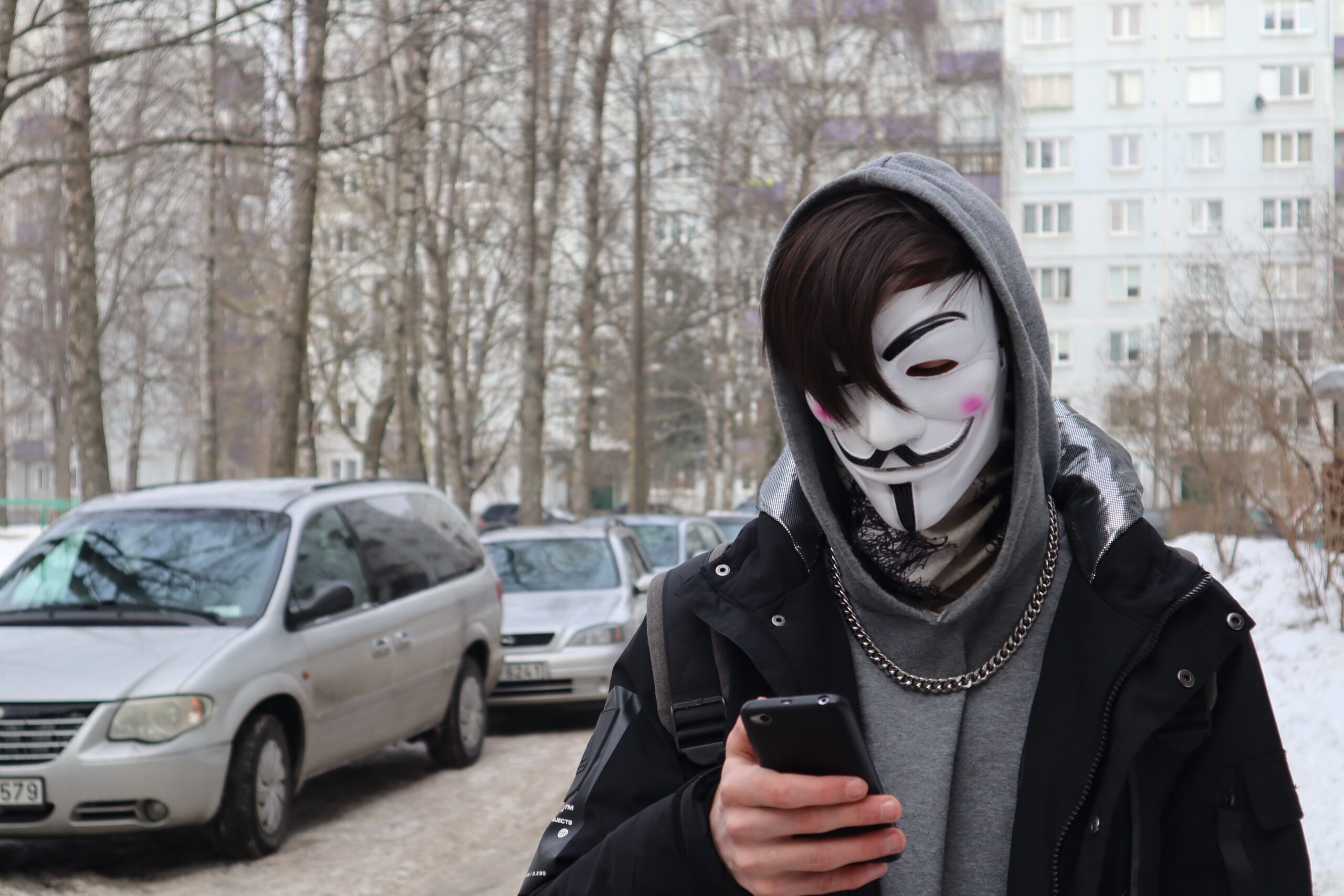Since its inception, the hacktivist collective Anonymous has left an indelible mark on the digital landscape, taking on a wide array of targets that they deemed oppressive, corrupt, or unjust. Embodying their motto of “We are Anonymous.

We are Legion. We do not forgive. We do not forget. Expect us,” the group has orchestrated numerous high-profile hacks, causing disruptions and grabbing headlines worldwide. Let’s delve into some of the most notable entities that Anonymous has targeted in their digital crusades.
1. Scientology: Project Chanology (2008)
One of Anonymous’ earliest and most significant campaigns was Project Chanology, a protest against the Church of Scientology. This operation arose in response to the church’s attempts to remove a leaked interview with Scientology founder L. Ron Hubbard from the internet.
Anonymous launched distributed denial-of-service (DDoS) attacks against Scientology websites and conducted protests outside church facilities worldwide. They also utilized various online platforms to spread information about the controversial practices of Scientology and its alleged attempts to silence critics.
2. Governments and Institutions during Arab Spring (2010-2012)
During the Arab Spring uprisings, Anonymous lent its support to the pro-democracy movements in several Arab countries. The collective targeted government websites and information infrastructure, aiming to provide a digital voice to those seeking political change and social reform.
Anonymous supported protesters in Tunisia, Egypt, Libya, and Syria, using cyber attacks to disrupt government communications and voice solidarity with the people on the ground.
3. PayPal and Operation Avenge Assange (2010)
In response to WikiLeaks founder Julian Assange’s arrest in December 2010, Anonymous launched Operation Payback. As part of this operation, they targeted several entities that had withdrawn support for WikiLeaks, including financial services company PayPal.
Anonymous launched DDoS attacks against PayPal’s website, disrupting its services for a brief period. The campaign sparked debates about the ethics of hacktivism and cyber protests.
4. Sony Pictures (2011)
In 2011, Anonymous targeted Sony Pictures in retaliation for the company’s legal action against PlayStation 3 jailbreakers and George Hotz (Geohot). The collective conducted a series of attacks on Sony’s networks, leading to the theft of sensitive data, including personal information of users and employees.
The breach caused considerable damage to Sony Pictures’ reputation and led to the postponement of several movie releases.
5. Steubenville High School Rape Case (2012)
In a departure from its usual targets, Anonymous took on a rape case in Steubenville, Ohio. After the alleged rape of a teenage girl by members of the high school football team, the town faced accusations of covering up the crime.
Anonymous exposed and disseminated social media posts and videos related to the incident, leading to increased scrutiny and eventual arrests of the perpetrators. The case highlighted the power of online activism in holding individuals and communities accountable.
6. Westboro Baptist Church (2013)
Known for its inflammatory and hateful messages, the Westboro Baptist Church became a target of Anonymous in 2013. Anonymous conducted a series of cyber attacks on the church’s websites and social media accounts.
The operation aimed to disrupt the church’s online presence and limit its ability to spread harmful messages.
7. ISIS and Online Extremism (2015-2016)
Following the rise of the Islamic State (ISIS) and its extensive use of social media for recruitment and propaganda, Anonymous launched a campaign against the terrorist organization.
Under the banner of #OpISIS, the collective targeted ISIS-related websites, social media accounts, and online forums, seeking to disrupt their communication and recruitment efforts.
8. The Ku Klux Klan (2015-2016)
Anonymous engaged in several operations targeting white supremacist groups, particularly the Ku Klux Klan (KKK). The campaigns sought to expose members’ identities and disrupt their communication channels.
By publishing personal information of alleged KKK members, Anonymous aimed to challenge the anonymity that such groups often enjoyed.
9. The Nigerian Government (2020)
In the wake of widespread protests against police brutality in Nigeria, Anonymous launched cyber attacks against Nigerian government websites. The protests, known as #EndSARS, called for an end to police violence and systemic corruption.
Anonymous used its digital prowess to amplify the voices of the protesters and draw global attention to their demands.
10. Operation Golden Eagle (2023)
In 2023, Anonymous initiated Operation Golden Eagle, targeting a secretive multinational corporation involved in environmental destruction and human rights abuses. The operation involved a series of cyber attacks aimed at exposing the company’s illicit activities and holding them accountable.
The campaign showcased Anonymous’ continued commitment to fighting against perceived injustices worldwide.
Conclusion: A Digital Force with Global Impact
Anonymous has proven time and again that its digital prowess can disrupt and expose entities that it believes stand against the principles of freedom, transparency, and justice. As a decentralized collective, Anonymous remains difficult to trace and predict, continuing to surprise the world with its audacious operations and determination to bring about change through the power of the internet. The future of this enigmatic digital avenger remains uncertain, but its legacy as a force for activism in the digital age is indelible.